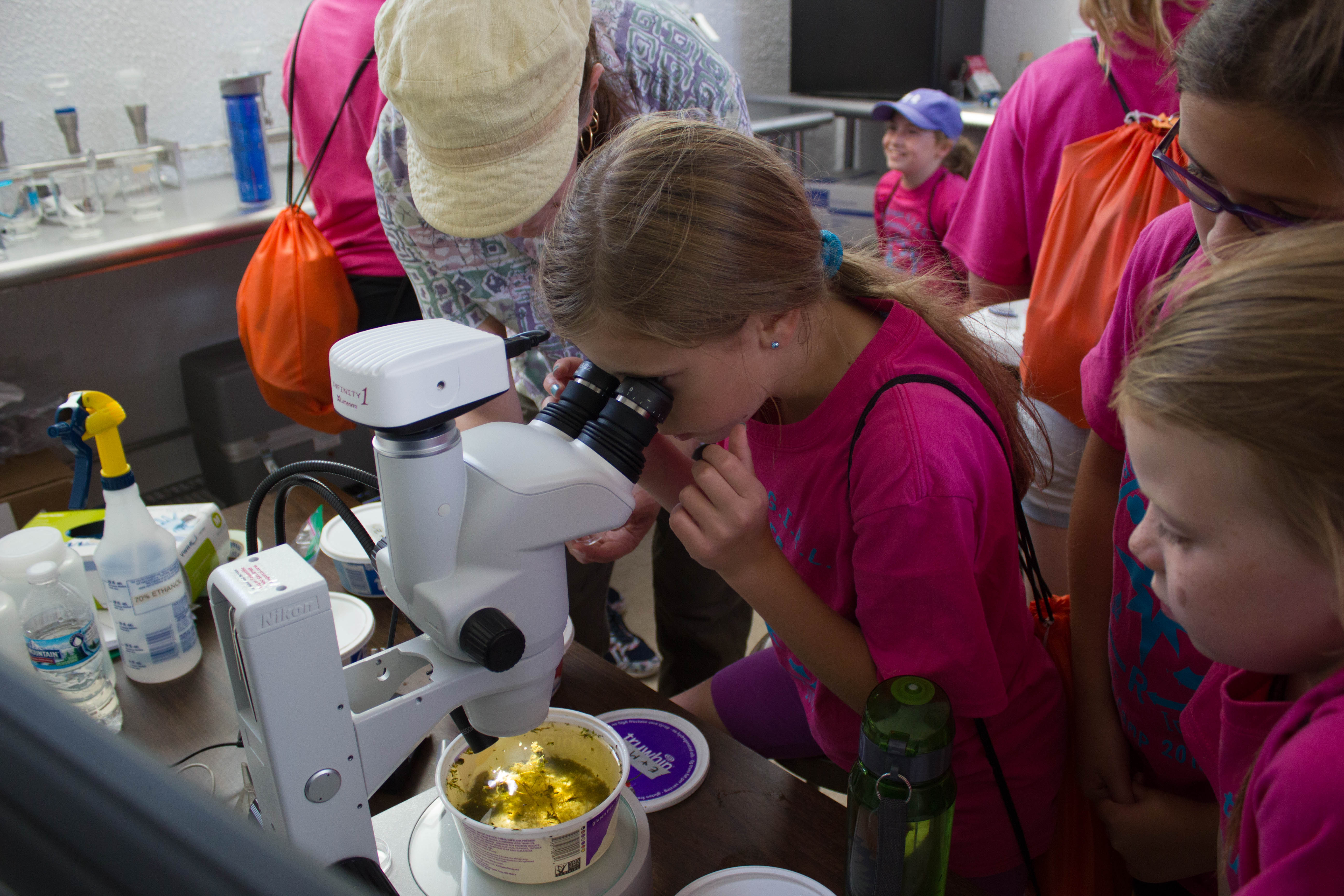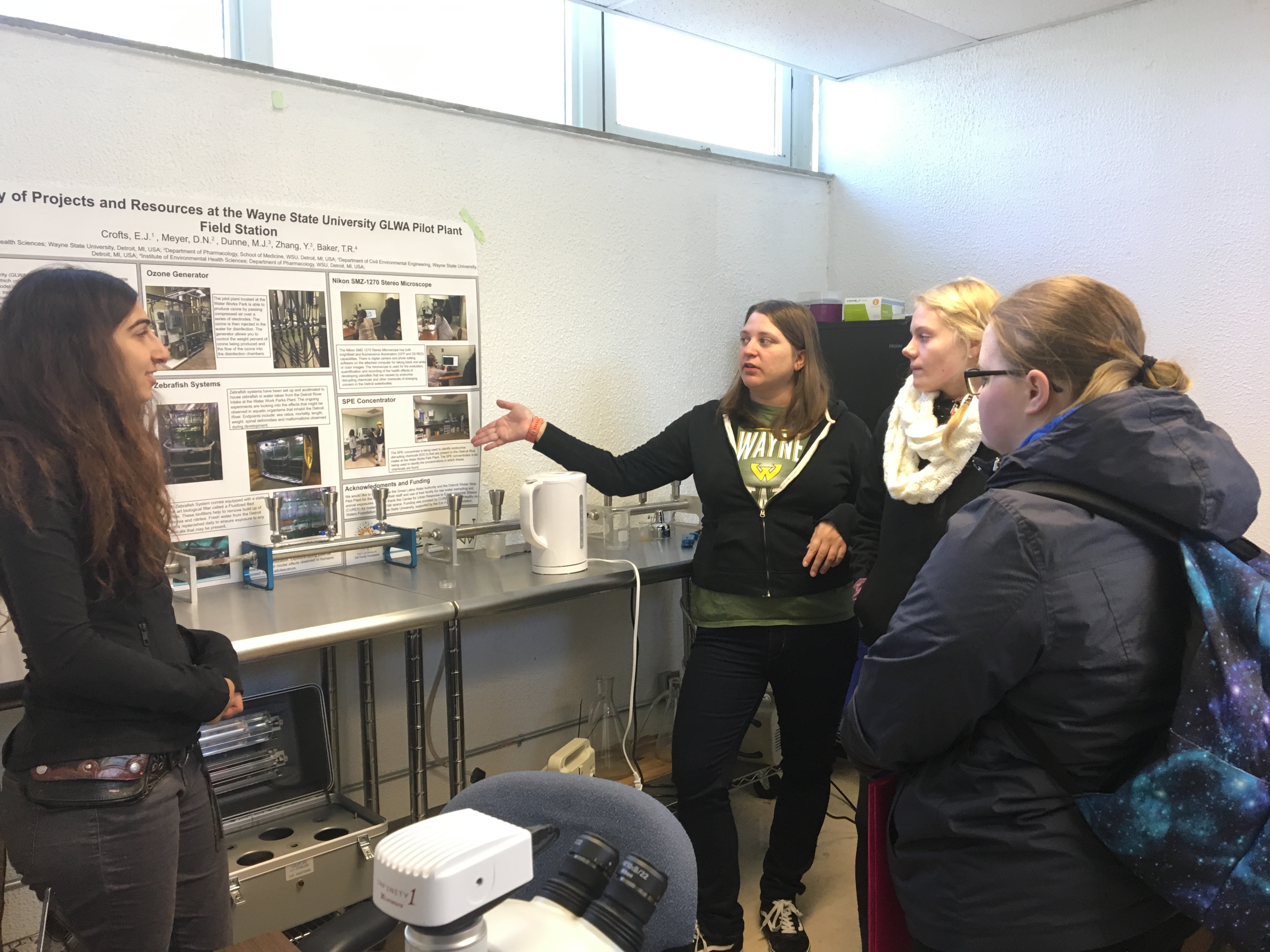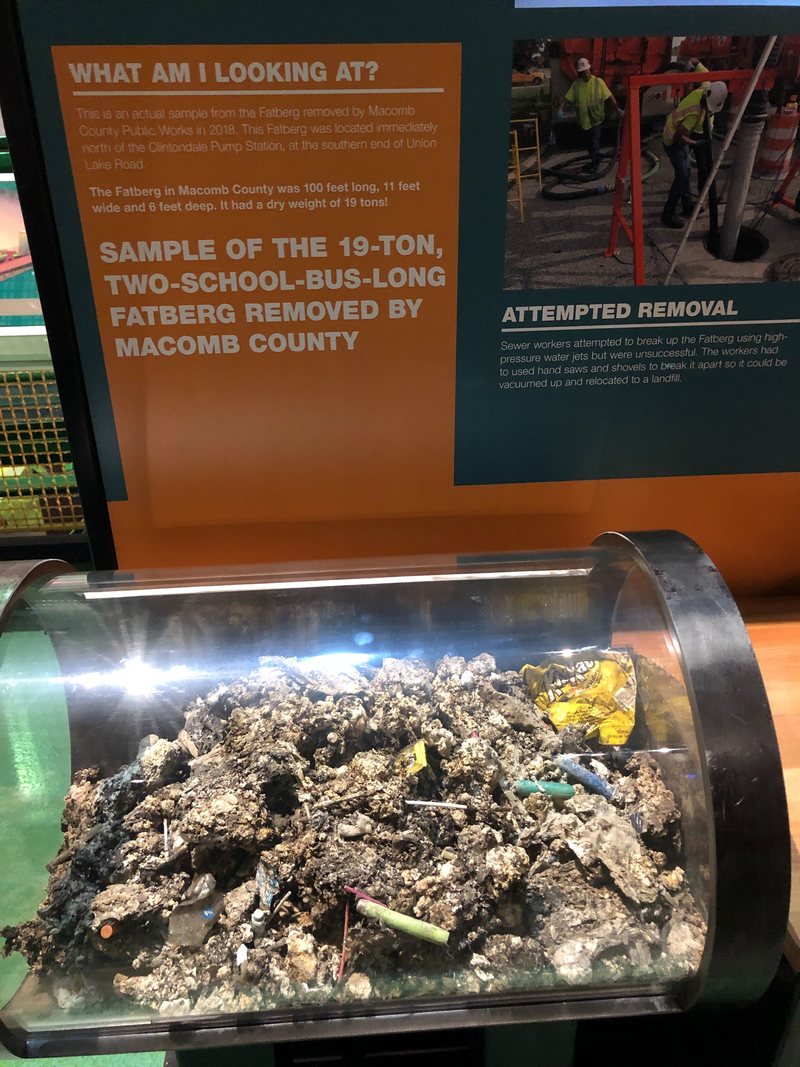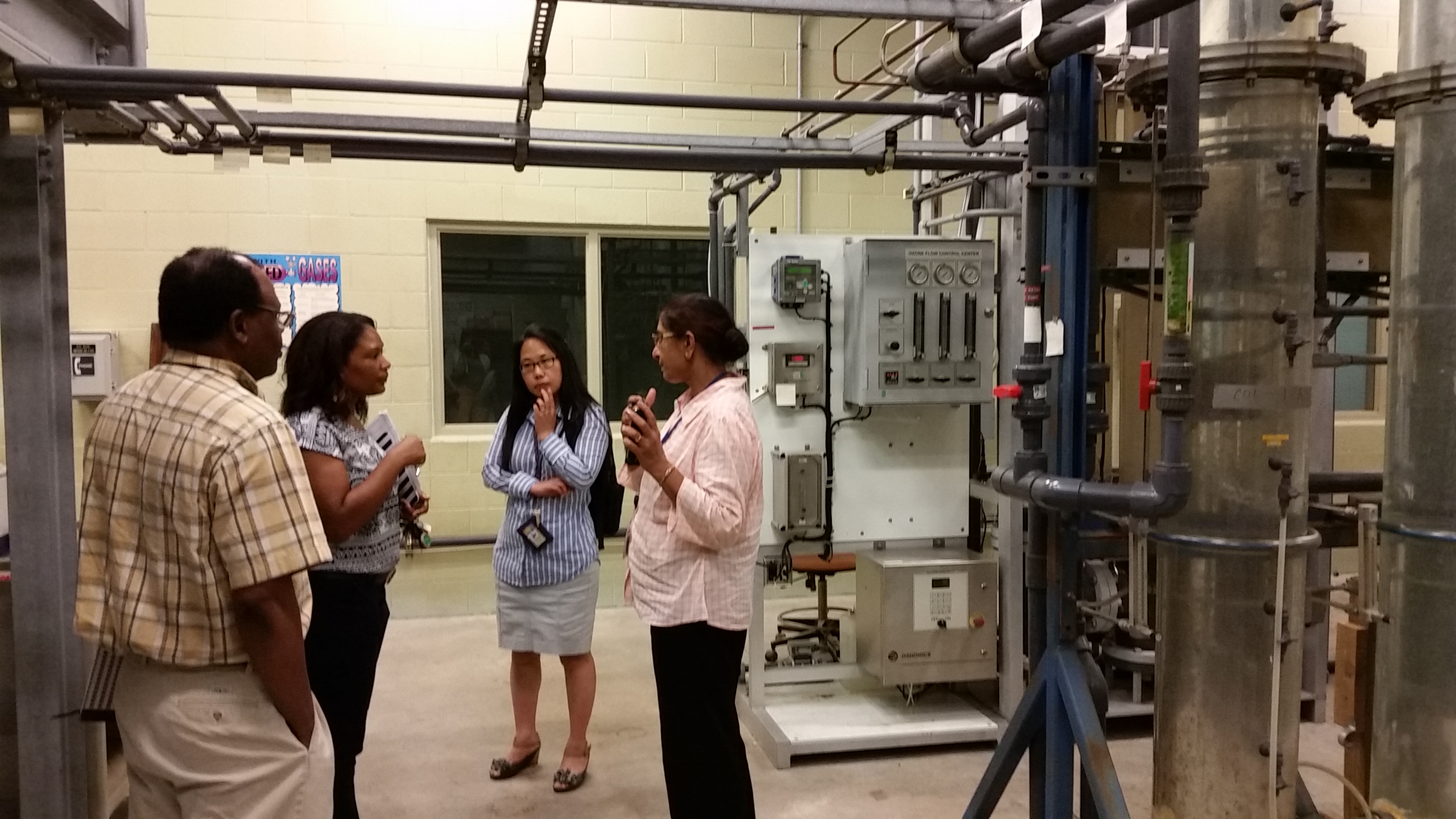Past Projects
Community Outreach
Creating Great Lakes Stewards to Promote Clean Water & Healthy Urban Watersheds in Detroit
Through a collaborative project with Michigan Technological University, Detroit Zoological Society, U.S. Fish and Wildlife Service, Southwest Detroit Environmental Vision, Detroit Audobon, and U.S. Forest Service, Healthy Urban Waters has been engaging teachers and students through workshops and field trips in addressing urban stormwater, green infrastructure, drinking water, and wastewater.
Lake St. Clair Metropark Habitats Tour
Healthy Urban Waters worked with a middle school girl scout troop to teach them about water quality and aquatic habitats. Through hands-on activities and visiting habitats, we were able to teach the troop about the different needs of various animals and what scientific observations to make to determine if a habitat is of good quality.
 Lake St. Clair Metropark Monitoring
Lake St. Clair Metropark Monitoring
With the Clinton River Watershed Council and the Lake St. Clair Metropark Nature Staff, we hosted high school students in our lab and taught them about water quality and microinvertebrate research.
Green Infrastructure and Flooding
Green Infrastructure Flood Mitigation Analysis and Modeling
This study provides detailed information about an area in the City of Detroit that has had known flooding problems and a significant number of FEMA flood damage claims from 2000 and 2014. The modeling and analysis performed is applicable for strategically locating green infrastructure and other alternative storm water treatment practices in this area. The analysis also is applicable for assessing the effects of alternative storm water management practices on flooding. Most importantly, the analysis process is documented to provide a tool with broad applicability for identification of appropriate flood mitigation actions generally.
Macomb County Sewer Analysis
 Fatberg Display
Fatberg Display
In September 2018, Macomb County extracted a 100 foot long fatberg from one of their main sewer pipes. A fatberg is a conglomeration of fats combined with solid debris such as wipes and other personal hygiene products. A part of the fatberg was extracted and saved and through a partnership with Wayne State University and Michigan Science Center, this portion was put on display at the Michigan Science Center in December 2019.
Wipes Analysis
Displosable wipes have been an ever increasing problem in sewer pipes, often causing issues with pumps and sometimes clogging pipes if not handled correctly. Research was done to better understand how much wipes decompose and if "flushable" wipes would actually decompose, as they are marketed.
Fatberg Game
During the summer of 2019, Game Art students at Lawrence Technological University became aware of the Fatberg and created a serious game to help inform the public about the issue. During the game, the player chooses where in his/her apartment to throw out the trash; down the sink, in the toilet, or in the waste bin. Once the player has thrown trash away, the game moves to the sewer, where the Fatberg is growing. When the player removes trash from the Fatberg, they learn about how to dispose of it properly.
Click here for direction on how to play the game. Compatible with PCs only.
Click here to download and play the game. The game size is approximately 38M, and 7zip is needed to extract all files.
Click here to take a short survey on your experience with the game
The application is provided on an 'as is' basis. As a result Wayne State University is not responsible for any technical failure of the application; or any damage or injury to users or their equipment.
Great Lakes Water Authority (GLWA) Water Works Park (WWP) Field Station
Endocrine Disrupting Compounds
The removal efficiency of endocrine disrupting compounds (EDCs) during drinking water treatment processes and the interactions of EDCs with bacteria in drinking water is being analyzed. One EDC (4-nonylphenol) was examined in the pilot plant to study the removal efficiency, interaction with microbial community, and bacterial resistance to disinfection.
Microplastics
Microplastics have become a growing topic of research due to the increasing proliferation in our environment. The interactions of microplastics with bacterial proliferation and biofilm formation, as well as their removal efficiency in drinking water treatment processes, are being investigated.